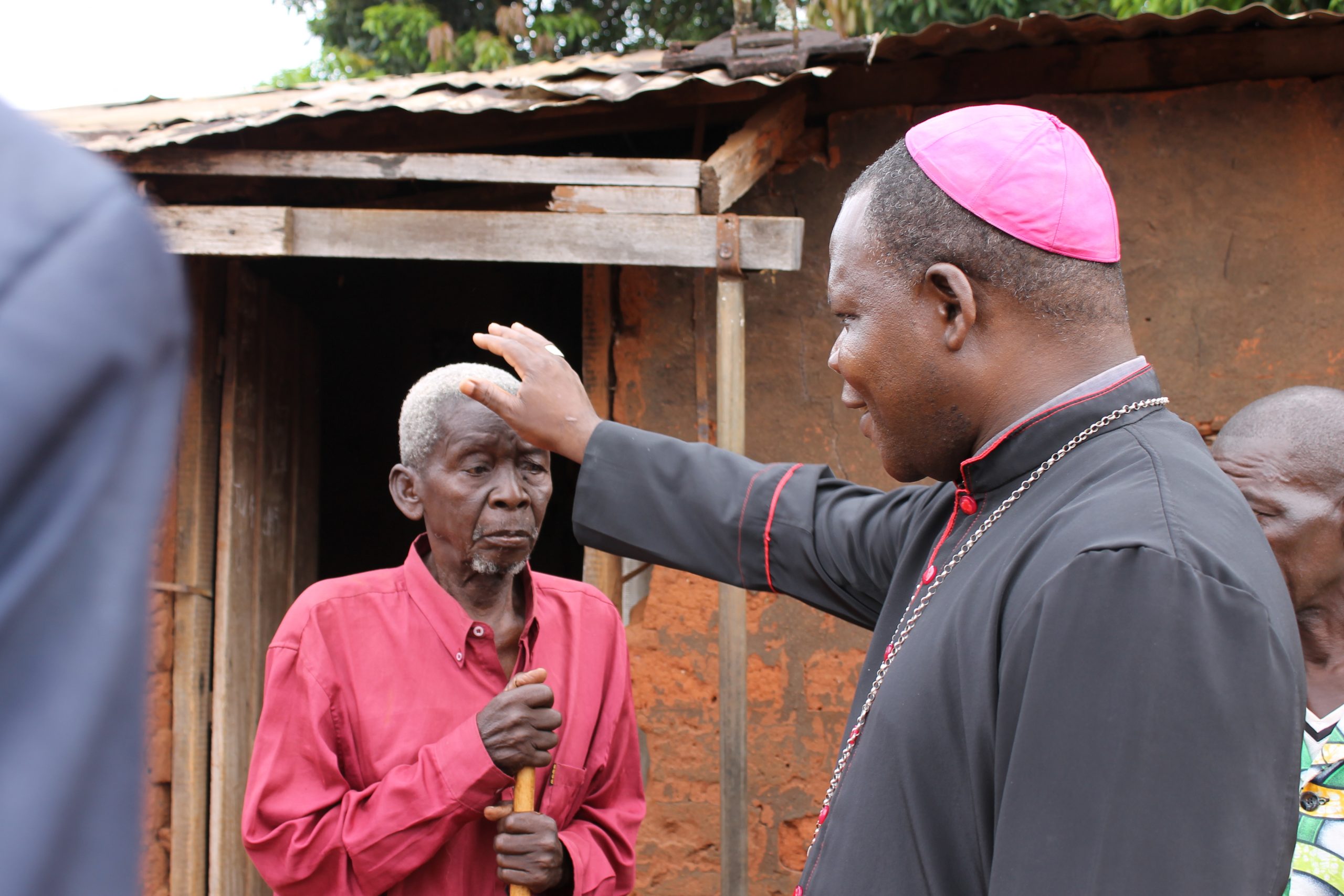IT HAS BEEN one year since the government of the Central African Republic and armed groups signed a peace treaty. Aid to the Church in Need (ACN) asked Cardinal Dieudonné Nzapalainga, archbishop of Bangui, for an assessment of the situation.
On Feb. 6, 2019 a peace agreement was signed by the government and 14 armed groups. What has happened since?
The violence has dropped dramatically, and the peace agreement was instrumental in this. Before the agreement, violence and attacks were laying waste to the country, but, since it was signed, it seems as though the people have internalized that peace is their mutual goal. Troubled areas still exist, of course, but not as many as before.
Have you seen changes in people’s behavior?
Yes. For example, I have just returned from a trip that took me through the northwestern parts of the country. During this trip young people said to me, “We understand now and are ready for peace.” This by itself can be considered a victory and I am very pleased to hear young people saying this. It is our duty to ensure that tensions are lessened, to act as an intermediary between people and to work on disarming hearts and minds, so that people can live together in fellowship.
What still needs to be done to achieve peace?
We have to be tireless in our efforts because the breeding grounds of violence are still there, as are the enemies of peace, those who illegally occupy the homes of families who have fled. In the name of justice, we are asking these people to return the houses to their rightful owners.
Work for peace is carried out through encounters, but also by implementing joint projects that require groups to work together to achieve a mutual goal. This way, they learn to get along with one another again.
Do you feel confident about the presidential elections scheduled for late 2020?
You can feel the tensions and hear the verbal battles. In this context, our role is primarily to emphasize that politics is not a platform for killing, but for development. You can hold opposing ideas, but you cannot pull out a knife to kill each other. I do see that the general public is waiting for reconciliation and justice, in the hope that it won’t be said afterwards that the most powerful had won again. To ensure that people are not left alone with their desire for revenge, reparation must be made and the laws must apply to all and be enforced for all.
The Church of the Central African Republic has just celebrated its 125th anniversary. How is it doing?
It derives its strength from its shepherds and lay people. I saw how they kept their faith even as the crisis reached its peak and continued to go to church. That shows an immense stability and firmness of faith. Last year, I visited Bilao, where people haven’t seen a priest for more than ten years. Despite everything, the Christians are still there and they have remained loyal to their faith. But when you see the corruption and cronyism of intellectuals and prominent persons, one does at times ask oneself what happened to the Gospel. Has it been transformed into something purely cosmetic, even though it should be our foundation?
What are the Church’s priorities?
First and foremost, education because illiteracy continues to be widespread. And a child who cannot read or write is at risk of being drawn into a rebellion. The Church plays a key role by giving children the opportunity to learn to read and write, because neither the government nor the people can afford to pay for their education.
Where do you find the strength to continue to work so tirelessly to bring about peace?
My strength comes from our Lord Himself. I pray to Him to give me time for devotions and prayer, otherwise, I will not be able to evolve further. It is the Lord who gives me the strength and the energy to keep setting off on my travels. Christians see the world differently from other people; their viewpoint emerges from their faith. They are filled with hope.
—Amélie de la Hougue





